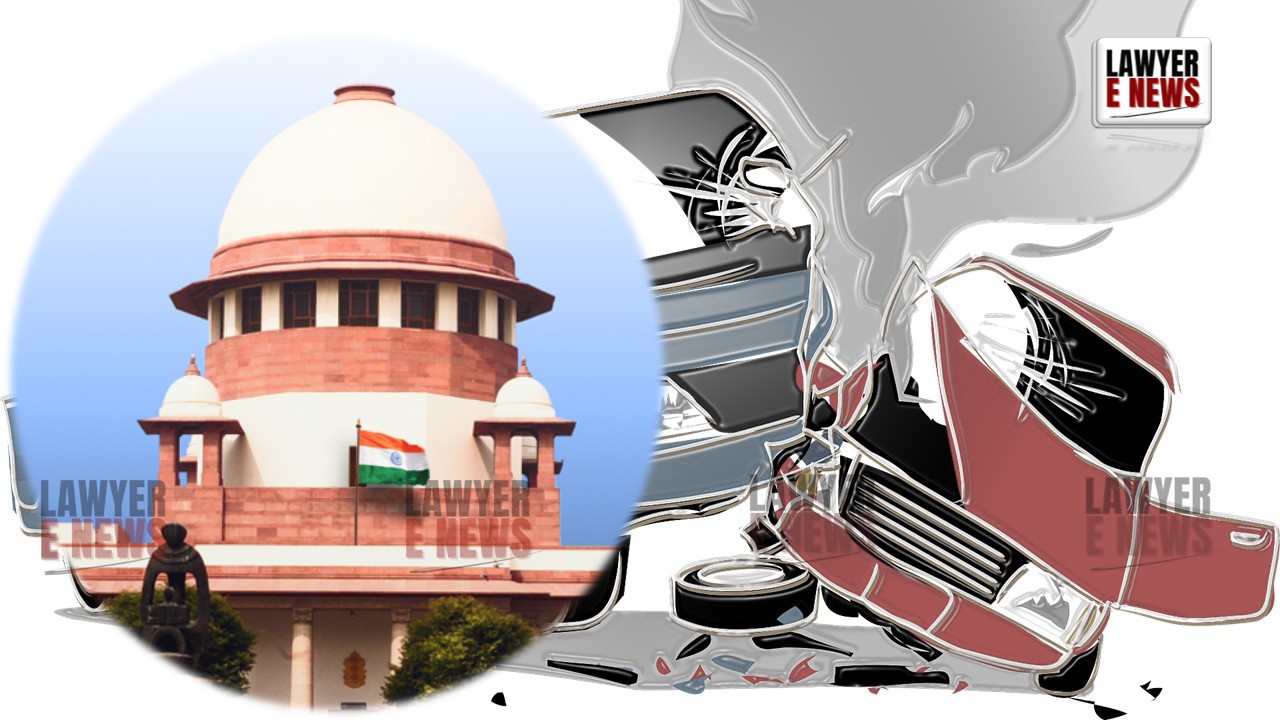-
by sayum
17 February 2026 8:32 AM



“₹7,500 Monthly Income for Coolie in 2010 Is Justified — Loss of Consortium Award Must Include Parents and Children”, - In a significant judgment delivered on April 29, 2025, the Supreme Court in Amarveer Kaur & Ors. v. Reliance General Insurance Co. Ltd. & Ors. (Civil Appeals arising out of SLP(C) Nos. 22192-93 of 2018 and 8172-73 of 2019) enhanced the compensation awarded in a fatal motor accident claim while affirming the insurer’s right to recover the award amount from the vehicle owner, due to absence of a valid license to drive a transport vehicle at the time of accident.
“The offending vehicle admittedly was a goods vehicle... it was not established that as on the date of accident, there was a valid license for driving a transport vehicle,” observed the Bench comprising Justices Sudhanshu Dhulia and K. Vinod Chandran, thus allowing the insurer to recover the payout from the owner.
Tribunal Granted ₹23.15 Lakh — High Court Slashed to ₹7.92 Lakh by Treating Deceased as Unskilled Labour
The claimants, widow and dependents of a deceased man who died in a motor accident, were initially awarded ₹23,15,000 by the Motor Accidents Claims Tribunal. However, the High Court drastically reduced this amount by holding that the deceased’s income should be taken as ₹3,700 per month based on minimum wages for an unskilled worker.
“The High Court rightly rejected the oral testimony of the rice mill owner since no accounts or provident fund proof was submitted,” the Supreme Court noted, but corrected the income determination using a more reasonable notional standard.
Referring to Ramachandrappa v. Royal Sundaram and Pranay Sethi, the Court held: “It can be safely presumed that a coolie in the year 2010 would have earned an income of ₹7,500 per month... considering the increase in cost of living and economic advancements.”
“Family of Six — Only 1/4th Deduction for Personal Expenses” — SC Clarifies Dependency Calculation
Disagreeing with the High Court’s deduction for personal expenses, the Supreme Court stated: “The deduction for personal expenses should be 1/4 since, along with the deceased, the family comprised six members.”
Applying the correct multiplier of 17 and future prospects at 40% for a self-employed worker, the Court recalculated the loss of dependency as ₹16,06,500.
“Consortium Must Include Children and Parents Too”: SC Awards Additional ₹2 Lakh Under Non-Pecuniary Heads
Citing New India Assurance Co. v. Somwati, the Court emphasized that consortium is not limited to spousal loss: “Apart from spousal consortium, filial and parental consortium loss also must be compensated.”
Accordingly, it awarded ₹40,000 each to the widow, two children, and both parents — ₹2,00,000 in total. An additional ₹30,000 was granted for loss of estate and funeral expenses.
Total compensation was fixed at ₹18,36,500, significantly higher than the High Court’s award.
No Valid Transport License — Insurer Liable to Pay, But Can Recover from Vehicle Owner
The insurer had disputed liability, arguing the driver's license was fake. However, the Court clarified: “We need not go into whether the license was fake or not... it was not established that as on the date of accident, there was a valid license for driving a transport vehicle.”
Because the license for transport category was valid only from 2014 onwards, and the accident occurred before that, the Court held: “We find no reason to interfere with the order... the Insurance Company was rightly given the authority to recover the award amount from the vehicle owner.”
Appeals Allowed in Part — Compensation Enhanced, Recovery Rights Maintained
The Court modified the quantum of compensation and upheld the right of the insurer to recover the awarded sum from the vehicle owner due to breach of policy condition.
“The appeals are allowed with the above modification.”
Date of Decision: April 29, 2025
